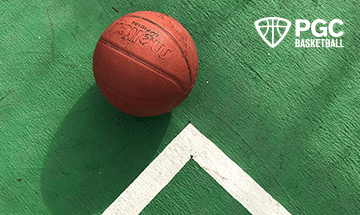10 Areas for Honest Self Evaluation
When was your last Self Evaluation?
Each year, before athletes come to my summer basketball programs, they are asked to fill out personal information sheets so I can learn some things about them before they arrive. One of the questions is so consistently answered in the same and (for me) unexpected way, that it has had an impact on the way I think.
The statement on the sheet says:
Please evaluate yourself as a student, as a person, and as an athlete.
The answers are amazingly consistent. Hundreds write that they are excellent students. How could they not be? Many of them get all A’s; they have 4.3 (or more) grade point averages or advanced placement classes that provide college credit and are “weighted” beyond the value of an ordinary course; and they won a poetry contest or science fair or a spelling bee. They are excellent students. Everyone agrees.
Almost all of the respondents try to be modest but, clearly, they view themselves as excellent people. How can they not? They write that they have a lot of friends; they are respected in their schools and communities; they win citizenship and student-athlete awards; and, probably most important, they try to treat others the way they would like to be treated. Sounds like excellence, doesn’t it? At first, anyway.
Finally, they get to the athlete part, and nearly everyone says “Fair” or “Okay.” Although they won this or that MVP or All-Conference award, they realize they are no Michael Jordan. They work hard, they usually say, but they know they have a lot of improving to do.
Do you get what has so often caught my eye? Three categories of human endeavor and, over and over again, the same three responses: Excellent student. Excellent person. Fair athlete.
In my opinion, they are correct on only the third evaluation where they have in mind the standard set by Michael Jordan.
I think the notion of excellence as a person on the part of young people who are, in fact, very average. For example, though they may win citizenship awards and think they try to treat others the way they would like to be treated, I would presume they fall far short of any standard of excellence that would arise should a group assemble to consider the elements of good citizenship or humanity.
Stemming from the need for a standard of personal excellence, I offer a citizenship test or “State of the Person” report card. In brief, here are twenty-one categories or subjects in which I think each person should strive to get an A. In my opinion, all A’s in these would qualify a person to think of himself as approaching excellence as a person in the same way Michael Jordan approached excellence as a basketball player.
How do you measure up?
1. Concentration
- Are you able to focus fully on whatever it is you are doing?
- If you can be left off in a library in a strange town and amuse yourself effortlessly for six or seven hours, this would be a step in the right direction.
- If you can pick up a book in any subject and study it for two consecutive hours, this would be another step.
A good person ought to be able to concentrate.
2. Systematic Improvement
Do you consistently work on goals and measure daily performance levels so you can clearly chart your improvement?
Without a plan and a method of periodic measurement, you really can’t claim to be maximizing your talents. If you don’t have a chart or two in your home that you mark daily, or at least twice a week, you surely are achieving below your capacity.
3. Curiosity
- Are your classes exciting?
- Are ideas exciting?
- Are people interesting to you?
Or do you chuckle at the idea of going to an opera, a ballet, or a lecture at the local university or library?
- Have you been to a gay rights meeting?
- A demonstration?
- A debate?
- Ever turn the TV on purpose to something you normally wouldn’t watch just to enlarge your sphere of knowledge and awareness?
It ought to be possible to get curious about any subject at all. If you ever claim to be bored, you aren’t even halfway there on this one.
4. Cheerfulness/Enthusiasm
- Do you seem happy to be alive at home and in school?
- Are you consistently excited by people, school, and opportunities?
- And is it obvious to everyone?
- Are you a joy to be around because you add a spark and energy to life?
The famous opera singer Beverly Sills, who had a lot of misfortune in her life, once said, “I may not ever be happy, but I hope I can always be cheerful.”
5. Workmanship/Production
What can you show off? Paintings, pottery, papers, poems, notebooks?
- What is the look of the papers you turn in to teachers?
- Are you proud of the way you represent yourself?
- What do you have that is concrete and substantial to show for your time on this planet?
If someone snooped around your things, what could they find that presents evidence of your good efforts?
6. Gratitude
- Have you written a thank-you note recently?
- Do you write at least one per month?
So many people do so much—parents, teachers, coaches, janitors, cooks—and rarely do they get any thanks for their good deeds and efforts. It would be impossible to ever thank parents enough. (How many diapers have you changed lately? It’s not as fun as it looks!)
7. Work Ethic
- Do you impress your parents, teachers, and coaches with how much energy and effort you put into the things you do?
- How often do people marvel at your capacity to work?
- How many teachers have told you that you are the hardest working student they have?
- How often has your coach told you that you are the hardest working athlete on the team?
8. Self-discipline
- Are you consistent about taking personal responsibility for hygiene, waking up in the morning, going to bed at night, beginning to study, turning in homework assignments, having a regular study place, and establishing useful routines?
9. Treatment of People
- Do you treat your parents as people?
- How is your treatment of teachers and strangers?
- What are your comments to others?
- How many people do you uplift in a typical day?
- How many people feel empowered and more confident as a result of your support?
- Are you encouraging and supportive of friends and acquaintances?
10. Uplift
- Do you make atmospheres better? In class, at home, in the gym, via trash, via talk?
- What impact do you have on your surroundings?
- Are the places you occupy improved as a result of your being in them?
Part 2: 10 More Areas for Honest Self Evaluation
—Excerpted from the book, “Running the Show”
Related Articles
The Beauty of the Game | The Leadership Podcast
Mano joins Jan Rutherford & Jim Vaselopulos, on The Leadership Podcast to talk about his sports and business experiences with stories and advice on thinking like a coach, communicating, and making a difference in people’s lives.
The Way I End Each Year
For the past few years, I have taken time over the holidays to do the same two exercises: On New Year’s Eve I take time to reflect back on the year; then on New Year’s Day I take time to create my plan for the coming year. These few hours have become really special to me. In fact, I look forward to them with great anticipation. Looking back on the year gives me the chance to pause to celebrate and appreciate all that transpired. My reflection process is the same each year.
A Leadership Lesson Most Never Get
If there is one crucial concept that is important to living well, it’s learning to live between your own ears.
About PGC
PGC Basketball provides intense, no-nonsense basketball training for players and coaches. Our basketball camps are designed to teach players of all positions to play smart basketball, be coaches on the court, and be leaders in practices, games and in everyday life.
We combine our unique PGC culture with a variety of teaching methods and learning environments to maximize the learning potential of those that attend our sessions. In addition to spending 6-7 hours on the court each day, lessons will be reinforced through classroom sessions and video analysis.
Our goal at PGC is to empower you with the tools to fulfill your basketball dreams, while also assisting you in experiencing the joy of the journey.
To learn more about PGC Basketball, including additional basketball training tips and videos, visit our YouTube Channel or find us on Facebook, Instagram, and Twitter.













Share This Post